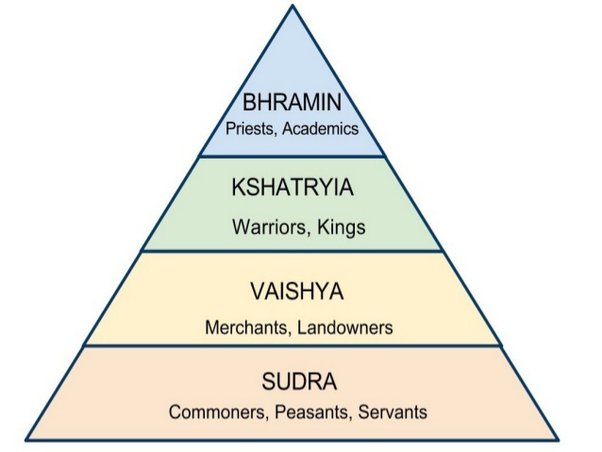Varnashrama Dharma

Varnashrama-dharma, frequently noted genuinely as Varnadharma, is a traditional social and ethical framework in Hinduism that outlines the department of society into 4 varnas (castes) and 4 ashramas (levels of lifestyles). It is a complicated machine that prescribes responsibilities and duties for people based on their varna and level of existence.
The Four Varnas (Castes):
Brahmins: Brahmins are historically the priestly magnificence. Their number one obligations consist of acting religious rituals, analyzing and teaching sacred texts, and guiding society in topics of spirituality and ethics.
Kshatriyas: Kshatriyas are the warrior and administrative class. They are accountable for protecting the land, implementing legal guidelines, and governing society. Kings and warriors fall into this category.
Vaishyas: Vaishyas are the merchant and artisan class. They have interaction in alternate, commerce, agriculture, and various professions. Their position is to supply and distribute items and wealth.
Shudras: Shudras are the laborer and carrier class. They assist the alternative 3 varnas of their duties, appearing tasks together with guide hard work and service-oriented paintings. They guide the functioning of society.
The Four Ashramas (Stages of Life):
Brahmacharya: This is the scholar level, normally from childhood to early maturity. During this stage, individuals get hold of training, inclusive of the observe of scriptures and moral values, below the steerage of a guru (trainer).
Grihastha: The householder level entails marriage, raising a family, and pursuing a profession. During this era, people are anticipated to fulfill their social, familial, and occupational obligations.
Vanaprastha: In this level, individuals steadily withdraw from worldly responsibilities, together with raising youngsters and handling a career. They consciousness on spiritual pastimes, regularly retiring to the forest or a quiet place for meditation and contemplation.
Sannyasa: Sannyasa is the renunciant stage, in which individuals surrender all worldly attachments and commit themselves absolutely to a existence of meditation, non secular cognizance, and provider to society. They undertake a easy, ascetic lifestyle.
Common Questions About Varnashrama-dharma:
Is Varnashrama-dharma still applicable today?
While the rigid caste-based totally machine is largely old and criticized for its discriminatory practices, the idea of pleasing one’s duties and obligations in society (dharma) remains taken into consideration applicable in Hindu philosophy. Many factors of Varnashrama-dharma have developed to adapt to fashionable society.
Is Varnashrama-dharma caste-based totally discrimination?
Varnashrama-dharma itself isn’t inherently discriminatory. However, in practice, it has every so often been misused to justify discrimination and social inequality, that’s a supply of criticism and problem.
Can one change their varna or caste?
Traditionally, varna became believed to be determined by beginning. However, in modern-day times, there is a developing popularity that varna should no longer be constant through birth, and people have to have the freedom to pick their career based totally on their abilities and pursuits.
Does Varnashrama-dharma apply to all and sundry?
Varnashrama-dharma was traditionally carried out to Hindus, but its ideas of ethical dwelling and fulfilling one’s responsibilities may be seen as regularly occurring and relevant to human beings of all backgrounds.
Is Varnashrama-dharma noted in sacred texts?
Yes, the concept of Varnashrama-dharma is observed in various Hindu scriptures, including the Vedas, Manusmriti, and Bhagavad Gita, wherein it’s far discussed inside the context of one’s duties (svadharma).
In present day instances, there may be ongoing debate and dialogue about the interpretation and relevance of Varnashrama-dharma, with many advocating for a more flexible and inclusive method that aligns with current values of equality and social justice.
